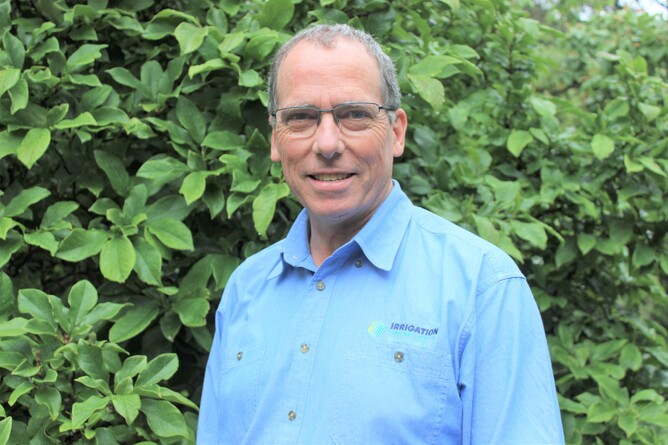IrrigationNZ’s Principal Technical Advisor Stephen McNally is the newest judge on the Zimmatic Trailblazer Sustainable Irrigation Awards, bringing his expertise in freshwater management to the panel.
Stephen holds a degree in Horticultural Science from Massey University and has over four decades of experience in agricultural infrastructure projects across New Zealand and Australia.
His career has spanned from working as a greenhouse crop technology advisor to a horticultural export business operator, and irrigation system designer. He has also led a multidisciplinary team in a large engineering consultancy, focusing on irrigation scheme developments.
“Supporting primary production has always been my passion and helping farmers get the most out of their operations. A lot is coming at farmers, which can be overwhelming, but I think we need to shift the language,” says Stephen.
“Farmers have always addressed challenges. That's what they do every day. The changes they face in freshwater management are no different,” he says.
Stephen’s commitment to industry standards and training earned him the title of Honorary Life Membership by Irrigation New Zealand in 2018.
In his most recent role as Principal Technical Advisor at IrrigationNZ, he drives best practices in freshwater management, IrrigationNZ aiming to make water storage part of a national strategic discussion on freshwater management.
As an award judge, he says he will be interested to see how farmers and growers keep abreast of new technologies, methods, and regulations.
“I think farmer intuition and curiosity are still key. Farmers know their operations inside out but I’m also a real advocate for continuous learning and open-mindedness in farming practices. We don’t always have to do things the same way,” he says.
In his current role, Stephen supports IrrigationNZ to advocate for improved water storage policies on behalf of its members. Connecting the different Government departments that shape freshwater legislation with the long-term goal of making water storage part of a national strategic discussion on freshwater management.
Currently, constructing water storage structures requires building and resource consent in what can be a time-consuming and costly process.
“If you look at the amount of water that falls on New Zealand annually, 96 percent of it flows to the coast or flows into aquifers. We have an enormous amount of water for what we want to do but it’s not always available when we want to use it,” says Stephen.
“It rains in autumn and winter, and we need that water in spring and summer when the rivers are low, and the aquifers are low. If we can easily store some of that high flow water, we can put it away for the dry day.”
Stored water also provides opportunities for making different decisions on farms.
“If you are only accessing water out of a river and there are restrictions or potential restrictions, farmers are likely to make different decisions with limited supply,” he says.
“Having a secure supply opens up the opportunity to diversify into higher value crops and see more diversified farming operations,” says Stephen.
He says climate change is affecting farming, causing shifts in harvest dates and changes in crop quality, and farmers need to be able to adapt.
“We need to develop infrastructure and practices that can accommodate these shifts in climate patterns.
“New Zealand should be looking towards community-based water storage schemes that are more cost-effective and beneficial compared to individual farm storage.
“Community schemes can serve multiple purposes, including drinking water, recreational uses, and maintaining environmental flows,” says Stephen.
“In areas like Tasmania, Government-supported water storage projects have significantly improved agricultural reliability and productivity. We’ve seen similar recent success here with the role central and local government has played alongside the rural sector, such as Tai Tokerau and Waimea water storage projects coming to fruition.”
Nominations and entries are now open for the 2024 Zimmatic Trailblazer Sustainable Irrigation Awards. All farmers and farming operations in New Zealand irrigating over 25ha on their property or properties are eligible. Entries close 26 July. For more information, to make a nomination or enter, visit www.irrigationtrailblazer.com.
The Awards have been made possible thanks to the support and generosity of our New Zealand industry partners Farmers Weekly, Irricon, Vantage NZ and IrrigationNZ.
